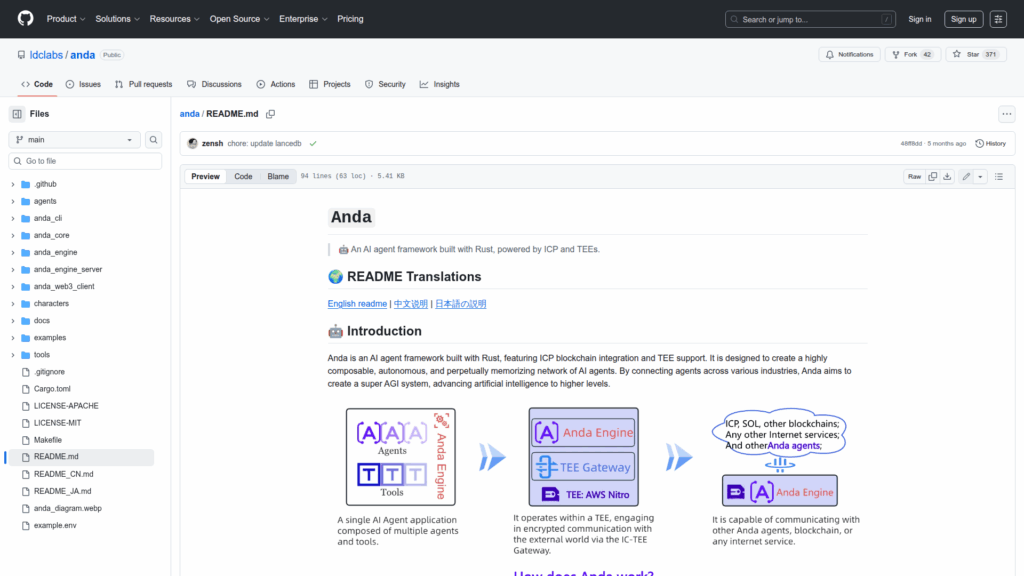Basic Information
Anda is an open source AI agent framework implemented in Rust that integrates with the Internet Computer Protocol (ICP) blockchain and trusted execution environments (TEEs). It is designed to let developers build, run, and compose autonomous, domain-specific agents that can collaborate to solve complex tasks. The repository contains a modular engine, a command line interface, an HTTP server to host multiple engines, storage and vector database integration, a Web3 client SDK, example agents and tooling. Anda emphasizes agents with permanent identities and cryptographic capabilities derived from ICP, secure execution and storage via dTEE, and persistent memory stored both on-chain and in trusted storage so agents can continuously evolve. The project targets both developers who extend the core libraries and engine and non-developers who can use example agents in the agents directory.








